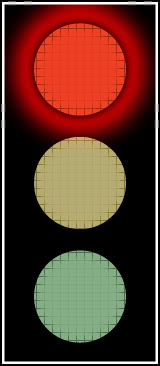 As Beijing glows over the naming of US Commerce Secretary Gary Locke as the first ethnic Chinese to become US ambassador to China, the nation’s struggling solar panel sector is more focused on Locke’s replacement, longtime California power industry executive John Bryson. President Obama reportedly hand-picked Bryson, chief executive of one of California’s top two power producers, in large part for his rich background in building and operating alternate energy generating facilities, even as much of the rest of the nation shies away from such plants despite attractive government incentives. Chinese media are saying that Bryson, with his strong ties to the power generating community, has been given a mandate to breathe new life into green energy production in the US, which, if successful, could mean a nice boost for China’s solar panel makers who are now struggling with one of their worst-ever downturns as building of new solar plants worldwide slows with the fading of the global economic crisis. (English article) Bryson’s pending arrival seems to have helped Chinese solar stocks, which are up 5-10 percent over the last three weeks from their previous lows during the China sell-off on Wall Street. Even industry laggard LDK (NYSE: LDK) saw its shares get a nice lift, rising 5 percent on Monday after it announced a relatively modest $10 million share buyback. (company announcement) I wouldn’t be surprised to see Bryson bringing in some major new orders for the solar industry by the end of this year, which will probably benefit the US players most but should also help Chinese companies that supply over half the world’s current capacity. If the Chinese companies are smart, they should start looking for US partners in both the power and panel production space who can help them capitalize on new business likely to flow as Bryson gets down to work.
As Beijing glows over the naming of US Commerce Secretary Gary Locke as the first ethnic Chinese to become US ambassador to China, the nation’s struggling solar panel sector is more focused on Locke’s replacement, longtime California power industry executive John Bryson. President Obama reportedly hand-picked Bryson, chief executive of one of California’s top two power producers, in large part for his rich background in building and operating alternate energy generating facilities, even as much of the rest of the nation shies away from such plants despite attractive government incentives. Chinese media are saying that Bryson, with his strong ties to the power generating community, has been given a mandate to breathe new life into green energy production in the US, which, if successful, could mean a nice boost for China’s solar panel makers who are now struggling with one of their worst-ever downturns as building of new solar plants worldwide slows with the fading of the global economic crisis. (English article) Bryson’s pending arrival seems to have helped Chinese solar stocks, which are up 5-10 percent over the last three weeks from their previous lows during the China sell-off on Wall Street. Even industry laggard LDK (NYSE: LDK) saw its shares get a nice lift, rising 5 percent on Monday after it announced a relatively modest $10 million share buyback. (company announcement) I wouldn’t be surprised to see Bryson bringing in some major new orders for the solar industry by the end of this year, which will probably benefit the US players most but should also help Chinese companies that supply over half the world’s current capacity. If the Chinese companies are smart, they should start looking for US partners in both the power and panel production space who can help them capitalize on new business likely to flow as Bryson gets down to work.
Bottom line: The naming of a solar energy booster with strong private sector ties as new US commerce secretary should provide a boost for the global solar panel sector in the next 12 months.
当中国还在为美国商务部长骆家辉被提名为首个华裔美国驻华大使而欢欣鼓舞时,中国苦苦挣扎的太阳能面板业的注意力则更多地放在了骆家辉的接替者–约翰•布兰森(John Bryson)身上。布兰森是加州最大的能源企业之一的董事长兼执行总裁。据报导,奥巴马提名布兰森为商务部长候选人在很大程度上是因为布兰森在创建和运营替代能源发电设施上有着丰富背景。尽管美国政府推出了诱人的刺激政策,但美国很多地区都对类似替代能源发电厂敬而远之。中国媒体报导称,在发电行业有着超强人脉的布兰森被赋予的一项重要任务就是,让美国的绿色能源生产焕发新生机。如果成功,这可能是对中国太阳能面板制造商的一次有利推动。随着全球经济危机的逐渐消散,在全球范围内修建新的太阳能发电厂的步伐逐步放缓,中国的太阳能面板制造商们正遭遇着业界最严重的不景气阶段之一。而布兰森即将走马上任的消息,给美国股市内的中国太阳能产业股带来了春风,在惨遭过去三周对中国概念股的抛售後,目前纷纷取得了5-10%不等的反弹,即便是业界的後进者——江西赛维LDK太阳能<LDK.N>的股价也上涨不少,在宣布了1,000万美元的股票回购计划後,赛维LDK的股价周一扬升5%。如果看到布兰森在今年年底前为太阳能产业带来某些新的重要订单,我并不会感到意外。受益最大的可能当属美国太阳能生产商,同时也有助於占世界光伏市场一半产能的中国企业。如果中国企业聪明的话,他们现在应开始在发电和面板生产领域,同时寻找一旦布兰森走马上任可能给他们带来新商机的美国合作。
一句话:奥巴马任命一位与民间太阳能行业关系密切的能源推动者出任美国商务部长,会在未来一年推动全球太阳能面板行业的发展。
Related postings 相关文章:
◙ Trina Doubles Warranty in Search of Sales 天合光能:延长产品质保年限以提振销售
◙ China Backs Solar Firms With Europe Financing 中国继续支持国内太阳能企业

 g twist media reported in April that Samsung would take a 15 percent stake in domestic TV leader TCL’s (Shenzhen: 000001) 8.5-generation LCD plant in Shenzhen. AU’s tie-up with Kunshan Longfei — under which AU will take over management of the company — should help the Taiwanese company quickly regain any lost ground on LG Display and Samsung, which have to build up their production facilities from zero. The irony in all this is that LCD sales will probably start to slow in the next few years as more and more homes already have big-screen TVs, just as all the new Chinese production is hitting the market. That will make the race even more interesting, as whoever gets to market first will probably beat the glut, at least initially.
g twist media reported in April that Samsung would take a 15 percent stake in domestic TV leader TCL’s (Shenzhen: 000001) 8.5-generation LCD plant in Shenzhen. AU’s tie-up with Kunshan Longfei — under which AU will take over management of the company — should help the Taiwanese company quickly regain any lost ground on LG Display and Samsung, which have to build up their production facilities from zero. The irony in all this is that LCD sales will probably start to slow in the next few years as more and more homes already have big-screen TVs, just as all the new Chinese production is hitting the market. That will make the race even more interesting, as whoever gets to market first will probably beat the glut, at least initially. services space is already dominated by well-established players Ctrip (Nasdaq: CTRP) and eLong (Nasdaq: LONG), as well as a number of smaller players with backing from big state-run travel firms. A quick view of the site is also quite underwhelming, as it doesn’t appear to offer anything that the others don’t already have and, accordingly, I wouldn’t expect to see too much return from this investment. Two other tie-ups that have made recent headlines will see Baiidu forming a strategic partnership with leading real estate service firm China Real Estate Investment Corp (Nasdaq: CRIC) (
services space is already dominated by well-established players Ctrip (Nasdaq: CTRP) and eLong (Nasdaq: LONG), as well as a number of smaller players with backing from big state-run travel firms. A quick view of the site is also quite underwhelming, as it doesn’t appear to offer anything that the others don’t already have and, accordingly, I wouldn’t expect to see too much return from this investment. Two other tie-ups that have made recent headlines will see Baiidu forming a strategic partnership with leading real estate service firm China Real Estate Investment Corp (Nasdaq: CRIC) ( There are a couple of interesting items in the media these last few days regarding cars, as automakers look desperately for any good news to jump-start sales that have slowed dramatically as Beijing looks to cool the economy and also ease traffic congestion. In the end, most of the hopes are destined for disappointment, as clearly economic cooling and making big city roads passable are clearly more important for China’s long-term welfare and thus will receive priority. But let’s get to the news. Perhaps most important were media reports late last week saying Beijing, under pressure from automakers alarmed by slowing sales, was considering putting the brakes on a national program to ease congestion by limiting the number of new license plates issued in major cities. (
There are a couple of interesting items in the media these last few days regarding cars, as automakers look desperately for any good news to jump-start sales that have slowed dramatically as Beijing looks to cool the economy and also ease traffic congestion. In the end, most of the hopes are destined for disappointment, as clearly economic cooling and making big city roads passable are clearly more important for China’s long-term welfare and thus will receive priority. But let’s get to the news. Perhaps most important were media reports late last week saying Beijing, under pressure from automakers alarmed by slowing sales, was considering putting the brakes on a national program to ease congestion by limiting the number of new license plates issued in major cities. ( I’ve probably written perhaps a bit too much about Google’s (Nasdaq: GOOG) ongoing clash with China over its mapping service, but in this instance I think the case merits the extra attention because 1) this is Google and China we’re talking about, and 2) the case has much broader implications for China’s future approach towards the Internet, which appears to be growing more flexible. Chinese media are reporting that a Google joint venture that would include its China mapping business has officially received government approval, paving the way for the venture to be licensed and for Google to keep operating the service under new rules that require such licensing. (
I’ve probably written perhaps a bit too much about Google’s (Nasdaq: GOOG) ongoing clash with China over its mapping service, but in this instance I think the case merits the extra attention because 1) this is Google and China we’re talking about, and 2) the case has much broader implications for China’s future approach towards the Internet, which appears to be growing more flexible. Chinese media are reporting that a Google joint venture that would include its China mapping business has officially received government approval, paving the way for the venture to be licensed and for Google to keep operating the service under new rules that require such licensing. ( Chinese TV program and movie makers, who often struggle just to survive due to rampant piracy and monopoly market conditions that constrain their ability to sell products, may be on the cusp of a golden age thanks to a new benefactor: the Internet. Chinese media are reporting that programming makers speaking at Shanghai’s annual film festival said the market has suddenly exploded for their product from a growing crop of content-hungry video sharing sites such as Youku (NYSE: YOKU), Tudou, Xunlei and Tencent (HKEx: 700). (
Chinese TV program and movie makers, who often struggle just to survive due to rampant piracy and monopoly market conditions that constrain their ability to sell products, may be on the cusp of a golden age thanks to a new benefactor: the Internet. Chinese media are reporting that programming makers speaking at Shanghai’s annual film festival said the market has suddenly exploded for their product from a growing crop of content-hungry video sharing sites such as Youku (NYSE: YOKU), Tudou, Xunlei and Tencent (HKEx: 700). ( Phoenix New Media (Nasdaq: FENG) has just published its inaugural quarterly results since going public in May, and while the top line looks encouraging the middle seems a bit cost-heavy and potentially worrisome. (
Phoenix New Media (Nasdaq: FENG) has just published its inaugural quarterly results since going public in May, and while the top line looks encouraging the middle seems a bit cost-heavy and potentially worrisome. (